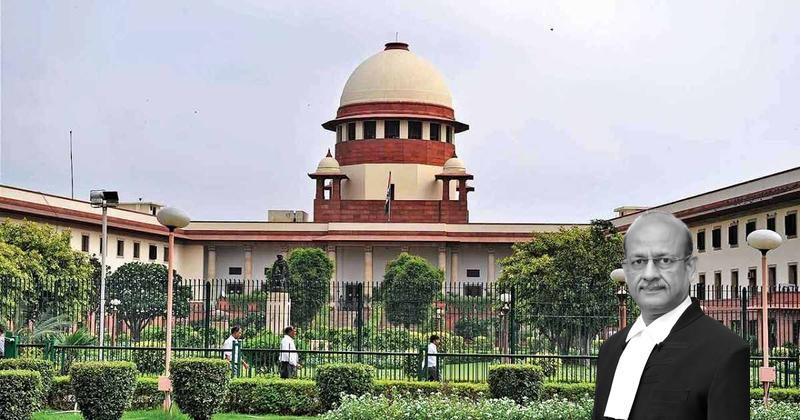Delve into the complex legal intricacies surrounding sovereign assurances in extradition cases as analyzed by the Court. The examination of international obligations, the principle of reciprocity, and the application of legal provisions adds depth to understanding the case.
Facts
- The appellant was extradited from Portugal to India for specific offences mentioned in the extradition request.
- The Government of India gave solemn sovereign assurances to Portugal regarding the punishment of the appellant upon extradition.
- The extradition order specified certain offences for which the appellant could be tried and sentenced by Indian courts.
- The Designated Court in Mumbai examined the extradition order and considered the assurance given by the Indian Government.
- There were efforts made to align the legal process in India with the extradition order from Portugal to ensure compliance with the solemn sovereign assurances.
- The Supreme Court of India and Portugal’s Courts were involved in the legal proceedings regarding the appellant’s extradition and subsequent legal actions in India.
- The
- Government of India requested extradition of the appellant from Portugal in nine criminal cases related to terrorist bombings.
- Assurance of reciprocity as per international law was given by India.
- Appellant challenged the separation of his trial from the main trial and framing of charges against him in Mumbai Court.
- Writ petition filed to quash charges based on violation of fundamental rights under Article 21 of the Constitution.
- Appellant claimed violation of assurance given by India as he was tried for offenses not covered in the extradition in Lisbon Court.
- Court of Appeal in Lisbon did not devolve the appellant, stating lack of competence but suggested accountability at international level.
- Supreme Court of Portugal remitted the matter to Court of Appeal to investigate violation of ‘principle of speciality’.
- Appellant served a portion of the sentence from 2002 to 2005 before conditional release.
- Detailed examination of facts and evidence was considered unnecessary due to limited pleas in the case.
Also Read: Supreme Court Judgment on Single Till Mechanism for HRAB Calculation: A Comprehensive Analysis
Arguments
- The counsel urged that the period of 25 years mentioned in the assurance will be honored when it expires on 10.11.2030, subject to available remedies.
- The consequences of Portugal Courts withdrawing extradition permission due to breach of solemn sovereign assurance were discussed.
- The merits of the controversy were highlighted for resolution.
- The Executive’s power to extradite accused/convicts of another State under the Extradition Act was emphasized.
- The importance of separating Judicial and Executive powers in the Constitutional Scheme of India was explained.
- The significance of solemn sovereign guarantees in International Public Law and the principle of reciprocity was mentioned.
- The Designated Court in Mumbai ensured that punishment would be consistent with the solemn sovereign assurance.
- The legal implications of Section 428 of the Cr.P.C. in setting off periods of detention undergone by the accused were debated.
- The appellant’s reliance on judicial pronouncements and legal provisions to support his plea for set off was discussed.
- The need for the Executive to comply with international obligations under the Extradition Act and the principle of comity of courts was emphasized.
- The significance of the solemn sovereign assurance given by the Executive regarding the appellant’s extradition from Portugal was highlighted.
- The judgments in question were mentioned in the Atul Manubhai Parek case.
- The Court decided to follow the view taken in the Raghbir Singh case.
Analysis
- The Court examined the extradition process involving the appellant and the commencement of the set-off period for his sentence.
- The Court considered the period of detention from 18.09.2002, when the appellant was formally detained by the Portuguese Police, until his conditional release on 12.10.2005.
- The debate over the application of Section 428 of the Cr.P.C. was discussed, emphasizing that it does not have extra-territorial application and applies only to the specified term within the country.
- The Court highlighted the importance of the Government of India adhering to its commitments regarding the appellant’s sentence and the application of relevant legal provisions for potential commutation or remittance.
- The Court underscored the necessity of time-bound actions by the Government in exercising specified powers for sentence commutation.
- Delicate balance to be maintained in legal matters
- Aspects discussed in the case of Jaswinder Singh v. Navjot Singh Sidhu & Ors
- Opinion in the judgment of the Supreme Court of Portugal regarding guarantees by the Government of India
- The sovereign assurance discussed Article 72(1) of the Constitution of India, granting the President the power to pardon or commute sentences.
- A person involved in international cooperation in Portugal cannot be prosecuted for any past offense prior to their presence in the country.
- Similar protection applies to a person appearing before a foreign authority.
- Before the transfer of a person under consideration is authorized, the State requesting cooperation must provide assurance for compliance with the rule of speciality.
- The immunity provided ceases if the person has the opportunity to leave but does not do so within 45 days, voluntarily returns to the territory, or the conditions of the assurance are violated.
- Section 34C of the Extradition Act ensures that a fugitive criminal extradited to India for offenses punishable by death will not face the death penalty but life imprisonment instead.
- Principle of giving the benefit of detention period followed in present case
- Ignored formal detention order passed earlier as serving sentence in Portugal for local offence cannot be set off against present case detention
- Date of detention in custody considered from 12.10.2005
- Detention post conditional release was in pursuance of present proceedings on same date of 12.10.2005
Also Read: Selection and Appointment of Judicial Officers in Himachal Pradesh
Decision
- The detention of the appellant is considered to have commenced on 12.10.2005.
- The appeal was heard on 05.05.2022 and the judgment was reserved.
- Upon the completion of 25 years of sentence by the appellant, it is the duty of the Central Government to advise the President of India under Article 72 of the Constitution for the exercise of powers to release the appellant.
Case Title: ABU SALEM ABDUL KAYYUM ANSARI Vs. THE STATE OF MAHARASHTRA (2022 INSC 671)
Case Number: Crl.A. No.-000679-000679 / 2015



